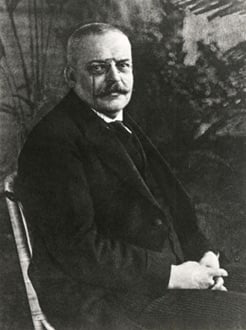
Auguste Deter was just 51 when her husband, Karl, brought her to the City Hospital for the Mentally Ill and Epileptics in Frankfurt, Germany.
Her behaviour, he said, was making it almost impossible for him to work. She was confused and disoriented, had problems with language and writing, and would sometimes wake in the middle of the night and scream.
At the hospital, she met Dr Aloysius Alzheimer, who was a specialist in psychiatry and neuroscience. He initially diagnosed her with presenile dementia, but would later recognise in her the cardinal signs of what came to be known as Alzheimer’s disease.
It was 1901 when Auguste presented to hospital, but her patient file still exists, and includes transcripts of her conversations with Dr Alzheimer.
“She sits on the bed with a helpless expression,” he wrote of his first observations of her.
When Alzheimer asked his patient for her name, she replied ‘Auguste’. But when he asked for her husband’s name, she repeated her own. ‘Your husband?’ Alzheimer tried to clarify. “Ah, my husband,” Auguste said.
The questions that followed are similar to the interview used today to screen for Alzheimer’s disease. Auguste’s responses were as follows:
“How old are you?”
“Fifty-one.”
“Where do you live?”
“Oh, you have been to our place.”
“Are you married?”






























































































